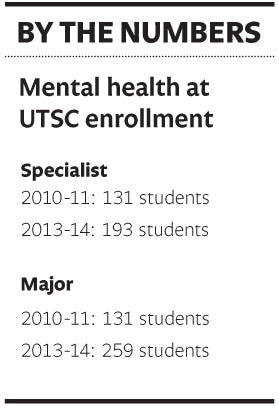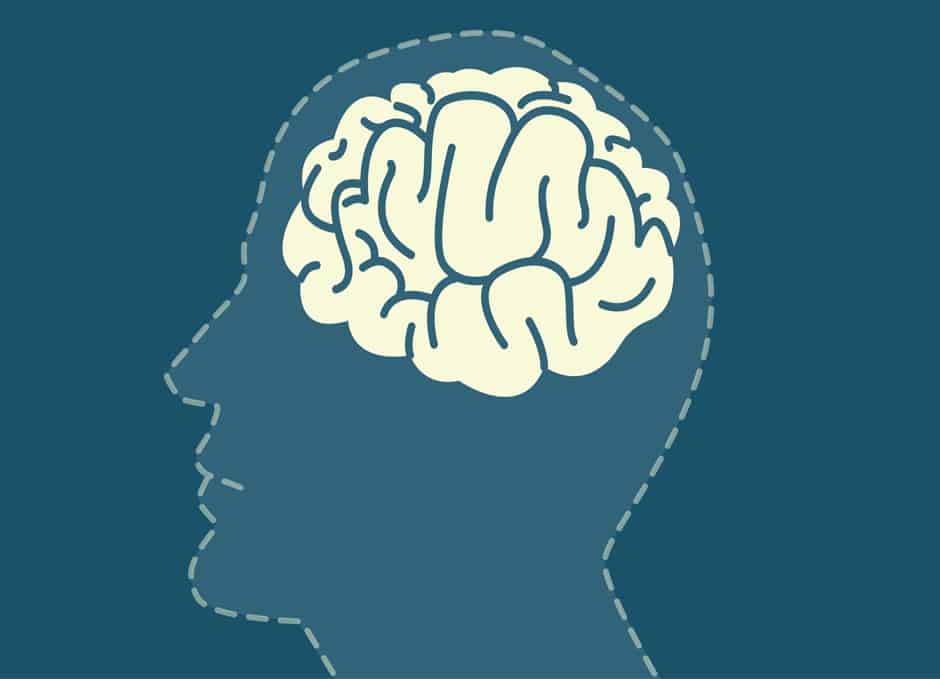Enrolment in the University of Toronto Scarborough campus undergraduate mental health program has exploded since the program’s inception, with the number of students pursuing a major doubling in the first five years.
The program offers specialist, major, and co-op options. It is the first of its kind in Canada.
The first students to enroll in the program did so in 2009–2010.
The program is under the purview of the UTSC Department of Psychology and is designed to prepare students for work in mental health-related institutions, whereas psychology puts more emphasis on the research of normal thought, feelings, and behavior — and less on abnormal psychological processes.
 Veerpal Bambrah, a mental health specialist in her final year, said that she enjoys the clinical focus of the program, as the courses highlight the various clinical interventions and psychotherapies that can be used to address mental illnesses.
Veerpal Bambrah, a mental health specialist in her final year, said that she enjoys the clinical focus of the program, as the courses highlight the various clinical interventions and psychotherapies that can be used to address mental illnesses.
“You’re being taught by clinicians themselves, so it’s always interesting to hear about their personal clinical experience with patients and how they dealt with various issues,” Bambrah said.
Bambrah said that an undergraduate mental health program is worthwhile for its intersections with other disciplines. “I think mental health really does transcend all aspects of life,” Bambrah said. “Having a background in mental health studies can be used to its advantage in any field an individual chooses to pursue afterwards.”
As a fourth-year student facing the prospect of employment or further education, Bambrah expressed optimism that her undergraduate degree would serve her well.
“Mental health is apparent and exists in law, gender studies, economics, [and] teaching. So I think it’s beneficial to have a background in mental health studies in your undergrad[uate career]; the knowledge and skills you learn can be applied anywhere in any other field,” she said.
Bambrah highlighted “Diseases of the Brain and Mind,” a course recently added to the mental health program, as a component that she particularly enjoyed.
The course addresses various principle methods used to diagnose, investigate, and treat a range of neurological diseases from a clinical perspective.
“What’s interesting is that the course is taught by a different faculty of the brain sciences research program at Sunnybrook Research Institute every week, so it offers very unique appreciation of different model and traditional neuroscience techniques that are implemented by these experts,” Bambrah said.
According to George Cree, chair of the UTSC Department of Psychology, enrollment in the mental health stream is growing rapidly. “We are delighted to see student interest in this area,” Cree said.
Outlining the direction in which the program is headed in the future, Cree noted that the program is in the process of review by U of T administration, with the hope of producing a combined undergraduate/graduate program.
According to Cree, such a program would allow high performing undergraduate students in the mental health program to receive early acceptance into the Masters of Social Work program.
Cree said that this would be done in collaboration with the U of T Factor-Inwentash Faculty of Social Work.
“Students benefit by learning in their third-year of undergraduate studies that they are accepted into the Masters program, and having some of their course work stand for advanced credit when they arrive in the Masters program. We expect this to be an attractive option for students when they are selecting their undergraduate programs, and we think it speaks to the excellent training we are providing our undergraduate students,” Cree said.


